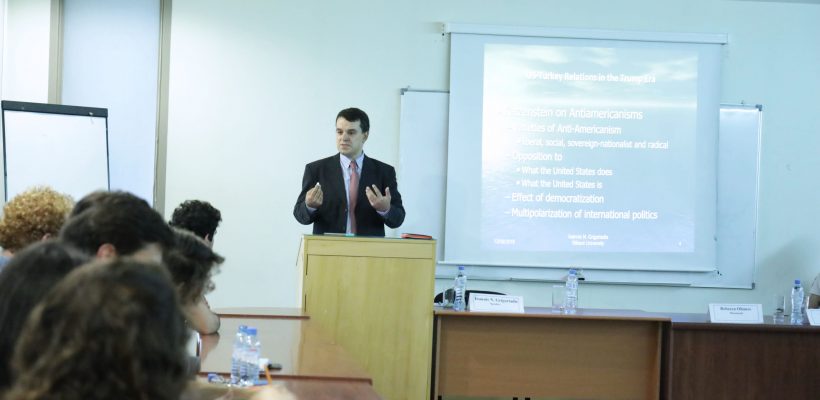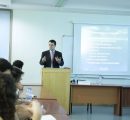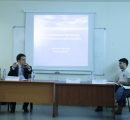
US-Turkish Relations in the Trump Era: Turkish Anti-Americanism and its Implications
2 min readYEREVAN, Armenia – On September 12, the American University of Armenia (AUA) Political Science and International Affairs (PSIA) program held the first seminar of the new academic year, titled “US-Turkish Relations in the Trump Era: Turkish Anti-Americanism and its Implications.” The seminar was led by Dr. Ioannis N. Grigoriadis, Assistant Professor and Jean Monnet Chair of European Studies at the Department of Political Science and Public Administration of Bilkent University, Ankara, and Research Fellow at the Hellenic Foundation for European and Foreign Policy (ELIAMEP).
Dr. Grigoriadis began his presentation by mentioning that the recent global opinion surveys have classified Turkey among the countries in which the United States enjoys the least favorable opinion. The deterioration of the US image in Turkey could be resulting from the recent US political and military involvement in the Middle East and the perceived clash of US and Turkish national interests in the region.
Dr. Grigoriadis added that Trump’s election was hailed in Turkey in contrast to the overall discontent by the international community. There was an expectation that Trump would put less emphasis on human rights and on other democratic principles and values in shaping US relations with Turkey placing more emphasis on the economic agenda and getting things accomplished in that realm. However, those expectations were not met, since the US was believed to be arming Turkey’s bitterest foe, the Kurds, and had an interest in preventing the rise of Turkey as a global actor in economic and diplomatic affairs.
The speaker also touched upon several other problems in the US-Turkey bilateral relations, among which he mentioned the Zarrab case, the extradition question of Fethullah Gulen, the case of Branson, etc. According to Dr. Grigoriadis, another case which exacerbated the level of distrust in US-Turkish relations is that Turkey purchased a Russian anti-aircraft missile system (S 400) despite having already agreed to acquire US fighter jets (F-35).
Following the presentation, Rebecca Ohanes, PSIA intern, and Arman Atoyan, MPSIA 2nd year student, served as paper discussants. Atoyan touched upon the question of creation of a Kurdish state in reliance of US support and Ohanes called for consideration of the effects of anti-American sentiments in Turkey and the extent to which the Turkish government is responsive to public opinion.
The seminar concluded with a questions and answers during which HE Nafsika Nancy Eva Vraila, Ambassador of Greece to Armenia, touched upon the question of how the findings from the public opinion survey were presented and how Turkish citizens reacted.
The AUA PSIA program equips students with advanced analytical reasoning, critical thinking, and communication skills through the study of political science and international affairs, emphasizing local and global perspectives and practical applications of theory. The program aims to provide world-class research and teaching, through which graduates can best contribute to the development of the nation.





